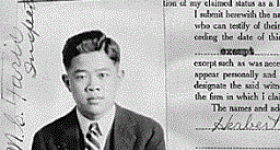In 2010, a shocking story emerged from South Korea: a three-month-old girl had died from malnutrition because her parents were so immersed in an online game that they forgot to feed her. After Korean police arrested the couple, their court-appointed attorney requested lenience, arguing that they were addicted to Internet gaming and did not deliberately starve their daughter. It was the first time anyone had attempted to use Internet addiction to justify reducing a criminal sentence. The ensuing media coverage raised questions about online gaming/Internet addiction and the ramifications of living in a super-wired society like Korea, which has some of the world’s fastest Internet speeds and highest rates of Internet access.
Love Child, a new documentary from American filmmaker Valerie Veatch, is an attempt to chronicle this complex story and investigate the ongoing cultural and economic debates it sparked. (The film’s title is a reference to the child’s name, Sarang, which means ‘Love’ in Korean. The title also reflects the fact that the game her parents played -- a now-defunct, role-playing game called Prius Online -- was populated with child-like avatars that followed players and aided them in battles.)
Love Child premiered at the Sundance Film Festival in January 2014 and will be broadcast on HBO later this month. Veatch talked to Hyphen about her mission for the film, her thoughts on Internet addiction, and how Koreans have responded to her film.
Hyphen: How did you first hear the story at the center of Love Child and why did you want to make a film about it?
Valerie Veatch: I was traveling in Rome at the time and the Italian news media made a big deal out of the story. It also felt like a piece of a bigger conversation that is growing as time unfolds: How are we handling the virtual space? What does it mean to be balancing our lives in between all of these environments? A lot of our experiences are now information we get from our devices. Is that addiction or an extension of ourselves into these virtual spaces? The film focuses on gaming, but in a broader sense, it’s a conversation about how we’re all using the Internet. We’re all kind of being sucked into or directed into this resource. Love Child is an extreme story, but it’s not like everyone’s lives aren’t being altered and shifted by social technologies -- they are.
Hyphen: Love Child recounts this couple’s court case, but the film also examines the gaming world and the extreme gamer lifestyle and looks at Korean politics and economics. What do you hope to achieve with the film?
VV: My films are very much born out of conversations. I like to use them to create space for dialogue. They’re sort of a constructed space for ideas to play out over 90 minutes. I also really love taking characters and stories that are challenging and seeing how you might feel sympathetic for them. By the end of Love Child, [the viewer should] understand how this [tragedy] happened.
Hyphen: The movie does make the viewer wonder -- and tries to explain -- why Korea? Why are we seeing this level of online gaming/Internet addiction in Korea?
VV: It’s a product of the country’s highly sophisticated IT [information technology] infrastructure. What has happened in Korea in recent years, from an infrastructure point of view, is incredible. There’s so much Internet access and it’s so fast. There’s also a very community-oriented attitude towards gaming in Korea. Everyone games together in the same space [24-hour Internet cafés]. Everyone’s playing the same game. There’s kind of a sense of community about it. Korea also has a strong in-game economy [where you can make money by earning and re-selling virtual goods]. So, there’s a financial aspect also, which can make engagement even more intense. But, overall, I think [the level of Internet addiction in a country] just corresponds to the amount of access to technology.
A similar, sad story happened in the U.S. as we were printing Love Child to go to Sundance [in October 2013]. A couple [in Oklahoma] that was always playing the online game Second Life neglected their three-year-old daughter so much that she nearly starved [and was taken away by authorities].
Hyphen: Did you consider broadening Love Child’s focus to include other countries? Online gaming/Internet addiction is a societal issue in China and Taiwan to some extent, as well.
VV: To look at other Asian cultures would have made this an entirely different film. At times, it was hard to not expand our mandate, but a good movie keeps things tight with its point of view, facts, and story. [Even just focusing on Korea] it wasn’t easy to balance all the information I wanted to get across in Love Child. It took a year and a half of editing and really working through the story.
Hyphen: How have Korean viewers reacted to the film?
VV: Online gaming/Internet addiction can be an extremely political issue in Korea. For example, the Korean government is considering taxing Korean gaming companies [to help pay for Internet addiction treatment programs]. I was very nervous about how Love Child would read in Korea. We showed it at the JeonJu International Film Festival in May. The festival was adjacent to a college campus and a lot of kids showed up. And the kids just got it; they really understood the dialogue. Older Korean people, too, said to me, “Thank you for making this film.” It was amazing how well it read.
Love Child will screen on HBO on July 28, 29, and 31 and August 3, 5, and 16. It will be shown on HBO2 on July 29 and August 1, 8, 10, 19, and 30.
***
Elizabeth Woyke is a freelance journalist in New York.









Comments